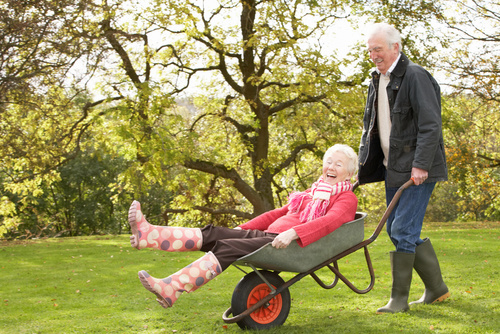
You may be dreading the conversation, but at some point, you'll need to have the talk with your parents. No adult child wants to watch their parents struggle, not getting the help they need. But how do you start the conversation that may compromise their independence?
Remember to take a breath before you begin, and follow these 15 tips for a smooth conversation.
Be Persistent – Don't expect that everything will work itself out after one sitting. You may have to continue the conversation more than once, so be patient.
Avoid Power Struggles – Don't push, nag or harass your parents. Don't make ultimatums or argue. You don't want to damage your relationship or cause further tension.
Be Sensitive – Criticism and judgment can also put your parents on the defense – let them know that you feel concerned about them, be honest that you're worried.
Timing Is Everything – Find a day or time where everyone is relaxed and calm. If you pick a day to talk, make sure you but your worries and anxieties aside – it will only make the matter worse.
Stay Calm – At some point, your parents may already be aware that they are changing. State your concerns calmly, speaking with love and tenderness can help reassure to them that everything is ok.
Seek Outside Help – You're not alone – plenty of adult children have gone through this conversation. It's ok to find support groups or talk to someone who can help guide you through this process.
Spend More Time With Them – Life gets busy, but be sure to make time with your parents. As they grow older, they'll need more attention from you. Plus, it will help keep the relationship and bond strength.
Ask Questions – Instead of talking at your parents, try asking open-ended questions. Such as, "why did you want to go to this particular store?" This could be a clue as to why your parents may need help or a change.
Coming Up With Solutions – If you feel your parents are concerned about ending up in a nursing home, try suggesting an alternate solution. Take time to do research on different senior living option. Take them to open houses. Show them that there are many other alternatives that can meet their needs.
Focus On Benefits – If your parents require around the clock care, find a place that meets their needs, as well as their hobbies and interests.
Bring In Siblings – Caregiving is a big responsibility, you shouldn't have to do it alone. If you have siblings, ask them to speak to your parents as well. It's important everyone sees eye-to-eye.
Enlist Support of Friends – Consider setting up a family meeting that includes close friends or neighbors. It can be easier to hear the truth from someone outside the family.
Talk To Their Doctor – Try talking to your parent's doctor. Let them know your concerns about their wellbeing. In the end, a medical professional may the advice your parents only listen to.
Outline Consequences – If your parents still demand to drive alone or live alone, remind them of the possible consequences of their actions.
Don't Count On Change – In the end, there may not be much you can do to change their mind. Remember – your parents are grown adults who have the right to make their own decisions. Sometimes all you can do is let go and accept the situation.
Help at Home can provide around the clock care for your senior loved ones by providing a stable, positive environment for seniors living with Alzheimer's, helping them to stay active, social, and stay healthy. Located in Greenwich, CT, Alzheimer's and Dementia Care / Help at Home, LLC is proud to be a top rated home health care provider in Fairfield County, CT, Westchester County, NY, Manhattan, NY and beyond. Our clients are our family and we treat everyone with compassion and care. Contact us today to see how we can help you and your loved ones. Email: maryann@alzdementiacare.com Phone: 203-520-0116

